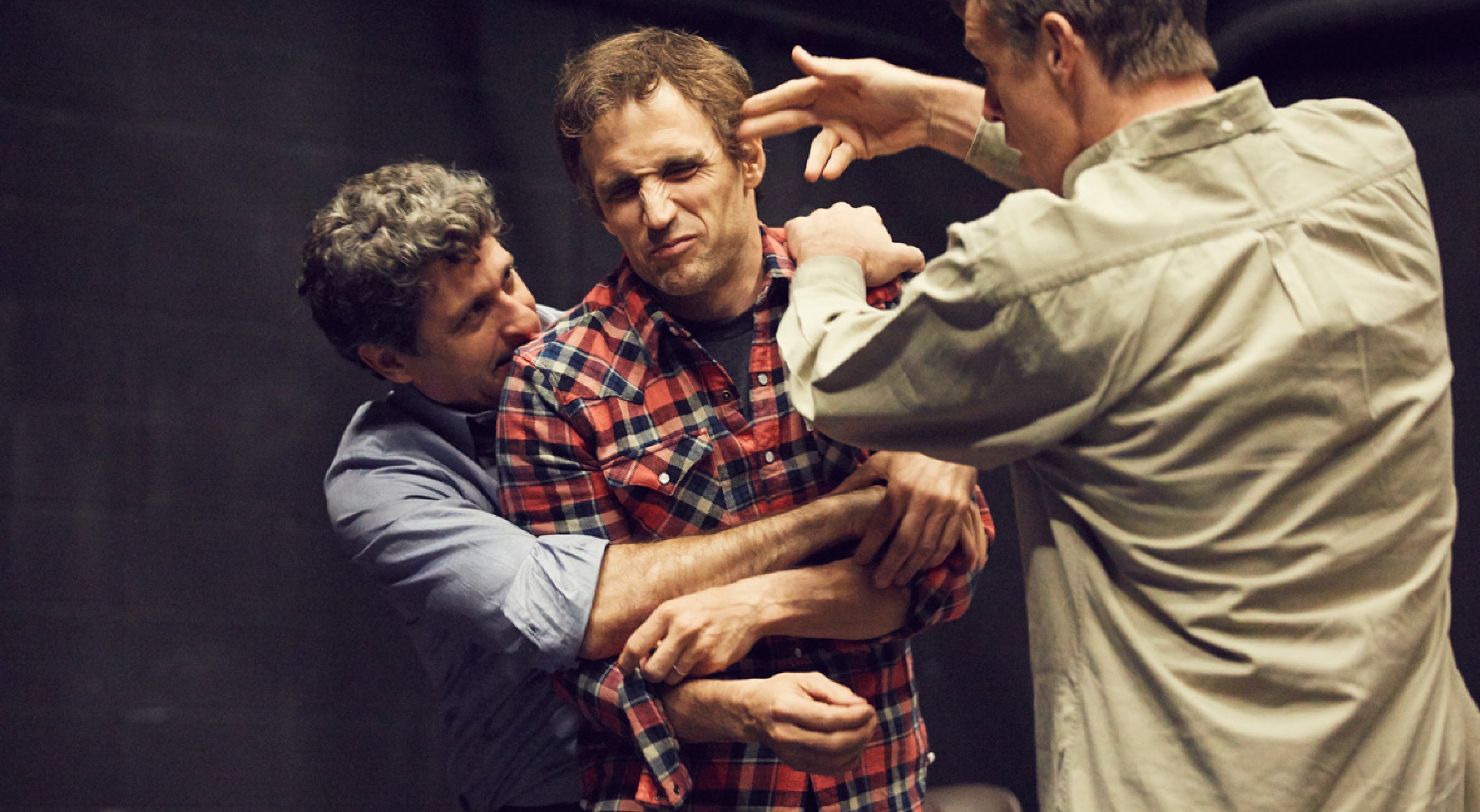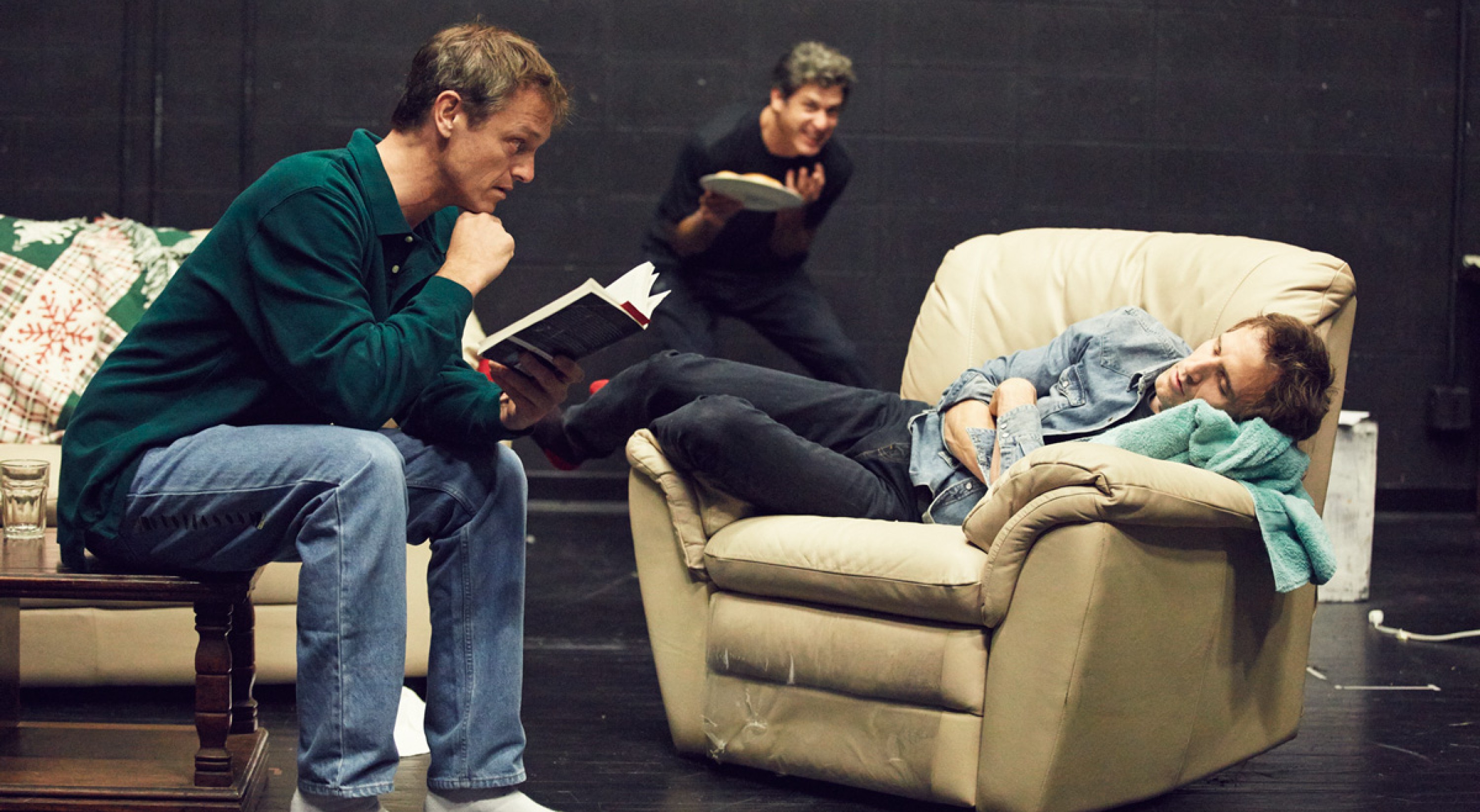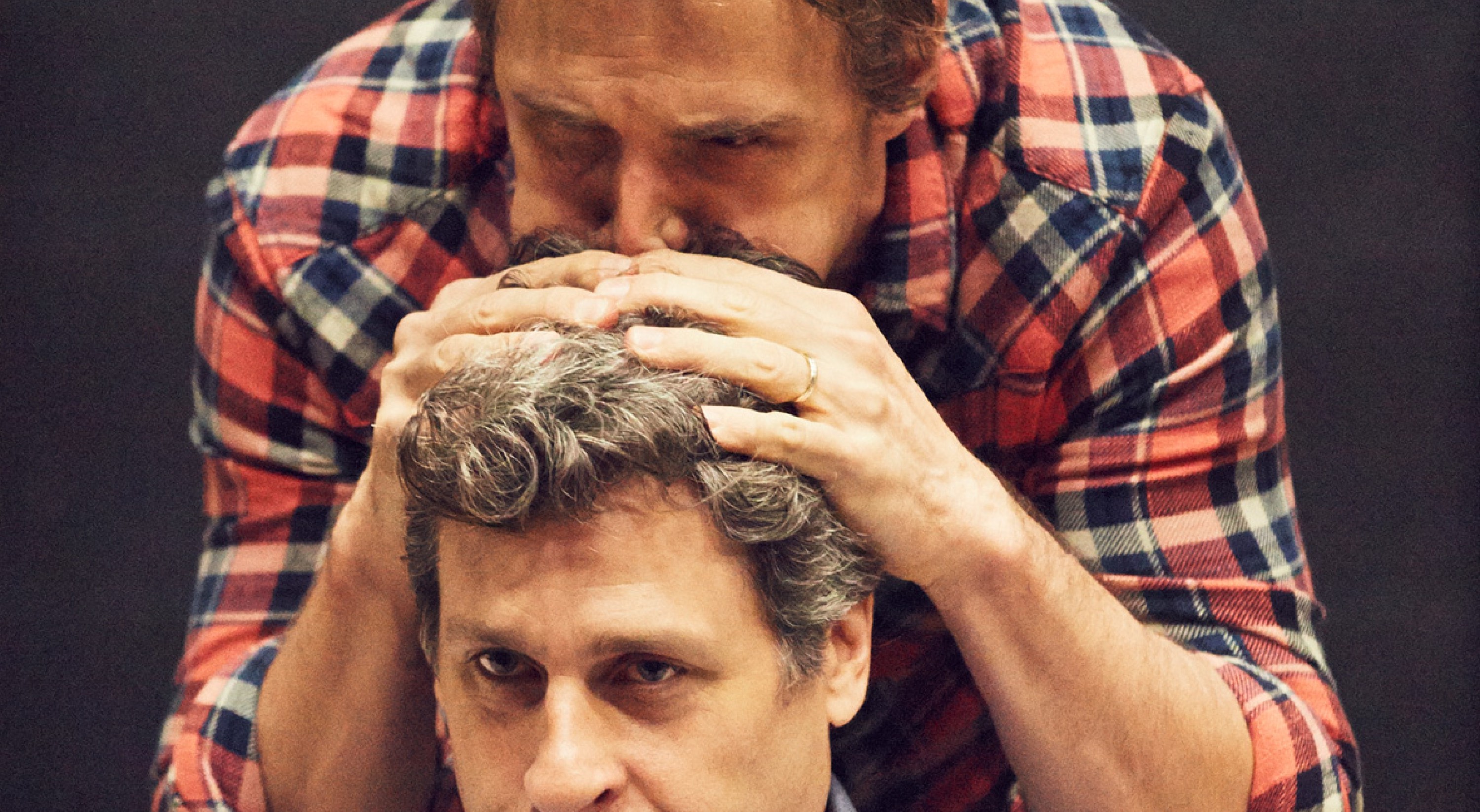Young Jean Lee
STRAIGHT WHITE MEN
octoberoct 16 – 19
Written and directed by, Young Jean Lee
Produced by Aaron Rosenblum
With Scott Shepherd, Pete Simpson, Austin Pendleton, and James Stanley // Associate director, Emilyn Kowaleski
Stage design, David Evans Morris
Costume design, Enver Chakartash
Lighting design, Chris Kuh
Sound design, Chris Giarmo, Jamie McElhinney
Choreography, Faye Driscoll
Dramaturgy, Mike Farry
Associate producer, Matthew Kagen
Production and stage manager, Chloë Brown
Technical director, Nathan Lemoine
Assistant stage manager, Stephanie Byrnes Harrell
Props master, Elizabeth Sargent
Associate dramaturge, Eric Shethar
Associate directors, Braulio Cruz, Kaela Garvin, Julia Mounsey, and Zachary Segel
Assistant set designer, Cate McCrea
Understudies, Zachary Segel, and Gerrit Thurston
French translation, Jean-Luc Defromont
A production by Young Jean Lee’s Theater Company // A coproduction with Wexner Center for the Arts at Ohio State University ; Center Theater Group (Los Angeles) ; Steirischer Herbst Festival (Graz) ; Public Theater (New York) ; Les Spectacles vivants – Centre Pompidou ; Festival d’Automne à Paris // In collaboration with Les Spectacles vivants – Centre Pompidou ; Festival d’Automne à Paris // With support from the Doris Duke Performing Artists Awards program, the New England Foundation for the Arts’ National Theater Project, principally financed by The Andrew W. Mellon Foundation, the MAP Fund, supported by the Doris Duke Charitable Foundation and the Andrew W. Mellon Foundation, the National Endowment for the Arts and the New York State Council on the Arts, a state agency. // With support from ONDA
The piece was presented for the first time on the 10th April 2014 at the Wexner Center for the Arts, à Colombus, Ohio
What happens when you lose the greatest of all privileges: that of forgetting you are privileged? This unexpected question is the departure point for STRAIGHT WHITE MEN, a piece which looks into the figure of the white heterosexual male, the “default voice” of our Western societies. In a faint echo to Arthur Miller’s Death of A Salesman and its exploration of the moral conflicts of a white, middle-class family in post-war America, STRAIGHT WHITE MEN brings to the stage an average family, comprising a father and his three adult sons. In the play, one of the sons questions his own position and goes against family expectations, thereby bringing into question the dominant values of contemporary neo-liberal society - and in particular its tendency to see personal success as a universal objective, individualism as a moral code, and the culture of self as an entity to be shaped and built. With its unassuming hero in mind, Young Jean Lee’s piece adopts certain theatrical conventions in order to bring out the strangeness and artificiality. For this Korean-born director and playwright, and key figure on the New York theatre scene, the play also poses questions about identity in all its various forms - be it ethnic, social or sexual - in a society which never fails to exalt its existence, but without ever delving into its contradictions nor clearly stating the terms for true togetherness.




